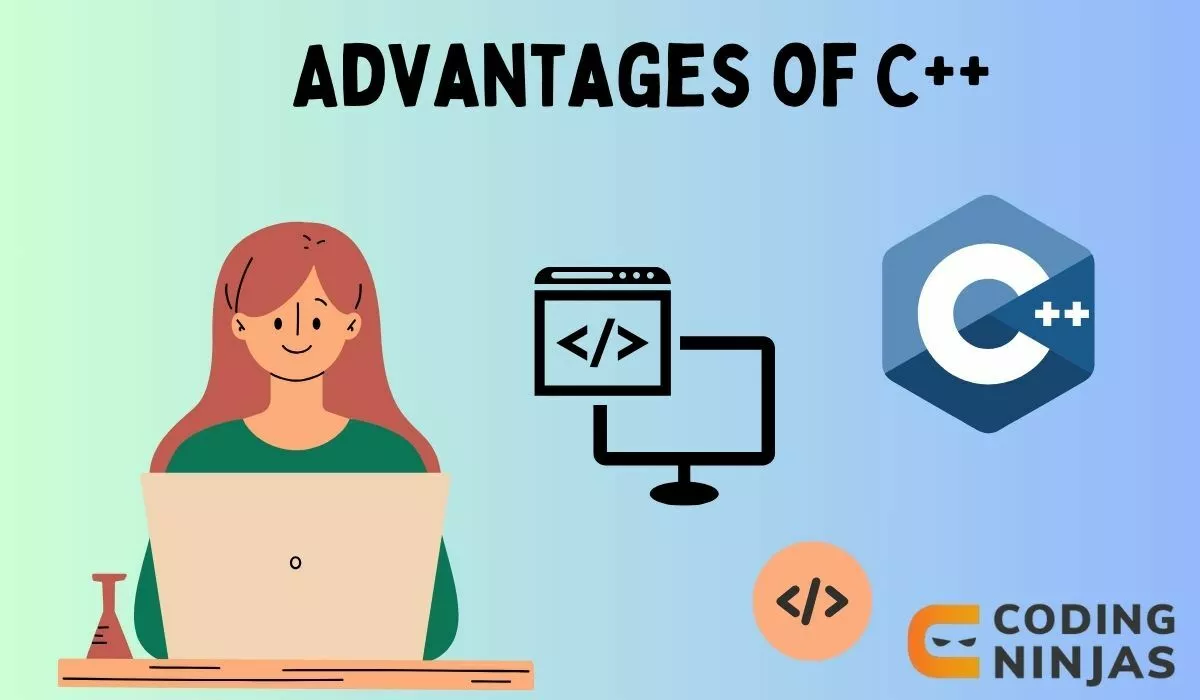Introduction
C++ is a powerful programming language used to create high-performance applications. It is an extension of the C programming language with added features like object-oriented programming, exception handling & templates. C++ is widely used in developing operating systems, browsers, games & complex business applications.

In this article, we will talk about the top 10 advantages of using C++ for your programming needs.
Advantages of C++
Performance & Speed
C++ allows for close control over system resources, which boosts the performance of resource-intensive applications. This high efficiency is ideal for software that demands quick response times and high-speed processing, such as games or simulation programs.
Memory Management
With its support for manual memory management, C++ gives developers the ability to control memory allocation and deallocation directly. This can lead to optimized program performance, although it requires careful handling to avoid memory leaks and other errors.
Object-Oriented
C++ supports object-oriented programming (OOP), which helps in organizing complex programs into manageable objects. This encapsulation, inheritance, and polymorphism facilitate code reusability and make large-scale software development more manageable.
Wide Range of Applications
From developing games to real-time mathematical simulations, C++ is used in a variety of applications. Its versatility makes it a preferred choice for systems software, application software, high-performance servers, and client applications.
Large Community & Resources
C++ has a vast community of developers, which provides an extensive support network and abundant resources. This includes comprehensive libraries, frameworks, and tools that help in developing, testing, and deploying applications.
Compatibility with C
C++ is almost completely compatible with C, allowing for code integration with legacy systems that were originally developed in C. This compatibility makes it easier to update or enhance older systems without a complete rewrite.
Control Over System Hardware
C++ provides unparalleled control over system hardware, which is why it's widely used in systems where hardware-level manipulation is necessary, such as embedded systems and operating systems.
Scalability
The language's structure and features support the development of scalable applications. C++ can manage resources efficiently, which is crucial for programs that may need to scale based on the user demands or data volumes.
Compiler-Based
As a compiled language, C++ translates code directly into a machine-readable format. This results in faster execution of the program compared to interpreted languages, as there’s no need to translate the code on the fly during execution.
Deterministic Resource Management
C++ supports deterministic resource management, which is critical in environments where predictable behavior is required, such as real-time systems (RTS). The ability to explicitly manage resources like memory and processing power helps ensure consistent performance.
Rich Library Support
C++ is equipped with a rich set of libraries, notably the Standard Template Library (STL), which offers tools like vectors, maps, and iterators. This library support simplifies complex tasks like data manipulation and file handling, enhancing developer productivity. Such robust resources enable efficient programming, making C++ ideal for developing scalable and high-performance applications.




